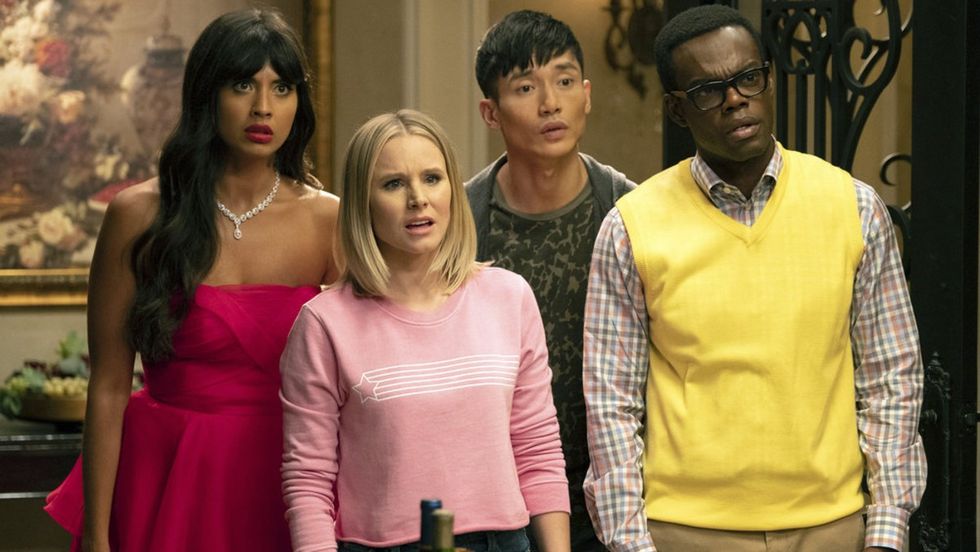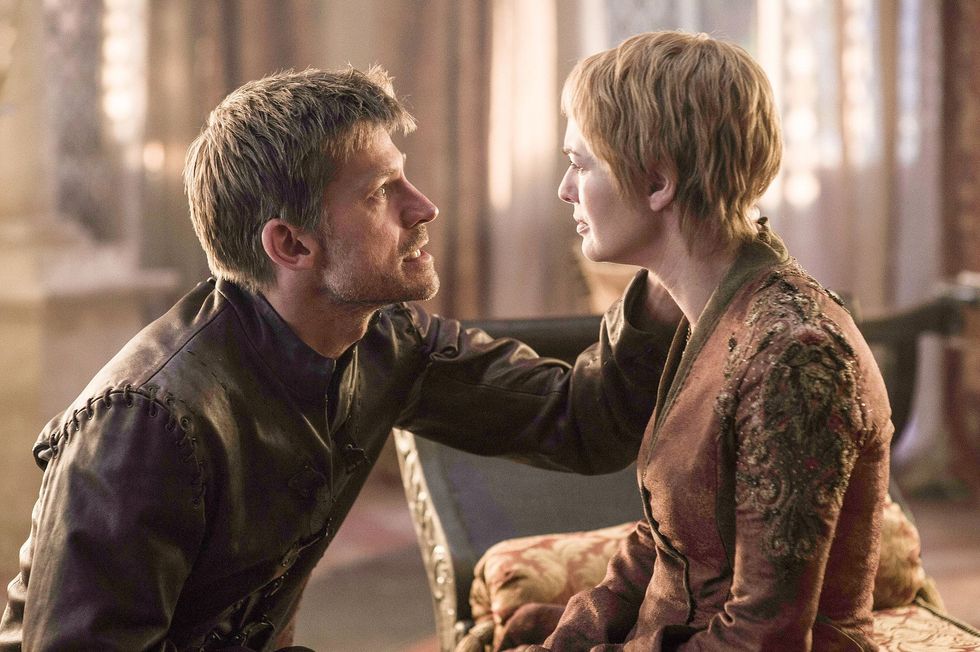
I’m working so hard on a new spec, and I got the most crushing note back the other day: there’s nothing wrong with the main character. There’s no flaw or idea that makes them relatable.
Character flaws are those tiny pieces of information that go a long way for readers to understand the protagonist. See, most people are fallible and prone to make a mistake here or there (whether they’ll admit it or not), so it sometimes feels alienating when the character we see on screen is just too dang perfect.
Today, we’re going to go over how they affect film and television writing. And we’ll even give examples of characters with flaws to help inspire you. Sound good?
Let’s get started.
Character Flaws in Storytelling
In storytelling, a character flaw is a limitation, weakness, or undesirable quality in a character’s personality or makeup. Flaws can be minor quirks or major obstacles that shape a character’s actions and decisions throughout the story.
Why Do We Need Character Flaws in Our Writing?

Have you ever heard the saying, “No one wants to watch a movie or TV show about the village of the happy people?” Well, the same goes for characters.
If people are normal and nice, it’s going to be hard to see them grow and learn through a satisfying arc. Your characters need flaws so we can see them either overcome them, or be consumed by them in an interesting and engaging story.
- Relatability: Imperfect characters feel more human and relatable to audiences. We all have our own flaws, and seeing them mirrored in characters helps us connect with their struggles and triumphs.
- Growth: Flaws create opportunities for character development and growth. Overcoming or learning to manage a flaw can be a significant arc in a character’s journey.
- Conflict: Flaws often create conflict within the story, either internally for the character or externally in their relationships with others. These conflicts drive the narrative forward.
- Interest: A flawless character can quickly become boring. Flaws add layers of complexity and unpredictability, keeping the audience engaged.
How to Use Character Flaws Effectively

Character flaws are essential tools for writers to create compelling and memorable characters. They add depth, complexity, and realism to stories, making them resonate with audiences on a deeper level.
But using them can take some practice.
- Don’t Overdo It: A character overwhelmed with flaws can become unsympathetic or unbelievable.
- Choose Meaningful Flaws: Flaws should be relevant to the character’s arc and the story’s themes.
- Show Consequences: Flaws should have consequences, both for the character and those around them.
- Allow for Growth: Don’t be afraid to let characters overcome their flaws or learn to manage them.
A List of Character Flaws You Can Use

Here’s a giant list of flaws that I think will help you brainstorm what needs to be in your script and what needs to support your character.
Let’s dive in.
Moral Flaws
- Selfishness: Putting one’s own needs and desires above others, often leading to manipulation or disregard for others’ feelings.
- Dishonesty: Lying, deceit, or withholding information for personal gain or to avoid consequences.
- Greed: An excessive desire for wealth, power, or possessions, often at the expense of others.
- Cruelty: Inflicting pain or suffering on others, either physically or emotionally.
- Arrogance/Hubris: An inflated sense of self-importance and superiority over others.
Emotional Flaws
- Insecurity: Lack of self-confidence and a constant need for validation from others.
- Jealousy: Resentment towards others for their possessions, achievements, or relationships.
- Anger: A tendency towards rage and outbursts, often leading to destructive behavior.
- Fear: An excessive or irrational sense of dread or anxiety, often leading to avoidance or paralysis.
- Codependency: An unhealthy reliance on others for emotional or psychological support.
Intellectual Flaws
- Stubbornness: Refusing to change one’s mind or consider alternative viewpoints.
- Close-mindedness: An unwillingness to accept new ideas or experiences.
- Naivety: A lack of experience or understanding of the world, leading to poor judgment.
- Obsessiveness: An unhealthy fixation on a particular idea, object, or person.
- Perfectionism: An excessive need for order and control, often leading to anxiety or disappointment.
Social Flaws
- Awkwardness: Difficulty interacting with others smoothly or comfortably.
- Shyness: A fear of social situations or interactions with new people.
- Lack of Empathy: Difficulty understanding or relating to the emotions of others.
- Social Anxiety: An excessive fear of being judged or negatively evaluated by others.
- Introversion: A preference for solitude and quiet environments over social interaction.
Examples of Character Flaws in Film and TV

All of the greatest characters have some sort of flaw that we’re watching them work out on the screen. Flaws give humanity to characters.
Let’s peek at some examples.
- Insecurity (Tony Stark, Iron Man): Tony Stark’s genius is often overshadowed by his deep-seated insecurity and need for validation. This drives his actions, both heroic and destructive. Not to mention the boozing.
- Obsessiveness (Gollum, The Lord of the Rings): Gollum’s obsession with the One Ring consumes his entire being, driving him to treachery and madness. Yikes.
- Arrogance (Dr. Gregory House, House M.D.): Dr. House’s brilliance is undeniable, but his arrogance and disregard for rules often cause friction with colleagues and patients.
- Social Anxiety (Raj Koothrappali, The Big Bang Theory): Raj’s crippling social anxiety prevents him from speaking to women unless he’s under the influence of alcohol.
- Codependency (Cersei and Jaime Lannister, Game of Thrones): The toxic relationship between Cersei and Jaime is built on a mutual dependency that enables their worst impulses.
- Fear of Abandonment (Buffy Summers, Buffy the Vampire Slayer): Buffy’s strength as a Slayer is contrasted with her fear of being alone and her vulnerability in relationships.
- Self-Doubt (Eleanor Shellstrop, The Good Place): Eleanor’s journey in the afterlife is shaped by her struggle with self-doubt and her quest to become a better person.
Let me know what you think in the comments.
Author: Jason Hellerman
This article comes from No Film School and can be read on the original site.
